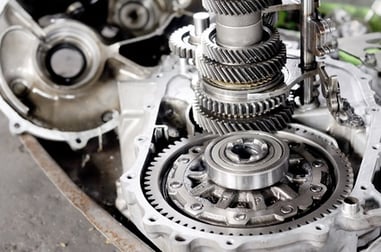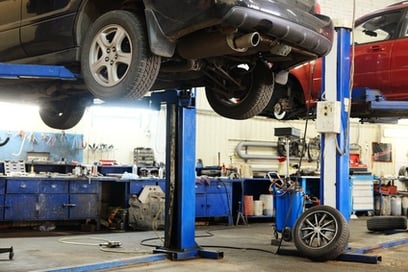Used Transmissions vs. Rebuilt or Remanufactured
 While several options are available to replace a broken transmission, they each come with their own set of pros and cons. Purchasing a used transmission is no different in this respect. Used transmissions are defined as complete units salvaged from a donor car, often a wrecker that still has working parts. We're writing today to address why you might be tempted to purchase a used transmission instead of installing a new, rebuilt, or remanufactured one, as well as the risks of used transmissions that might cause you to reconsider that option.
While several options are available to replace a broken transmission, they each come with their own set of pros and cons. Purchasing a used transmission is no different in this respect. Used transmissions are defined as complete units salvaged from a donor car, often a wrecker that still has working parts. We're writing today to address why you might be tempted to purchase a used transmission instead of installing a new, rebuilt, or remanufactured one, as well as the risks of used transmissions that might cause you to reconsider that option.
Advantages of Used Transmissions
Used transmission are perhaps most tempting because they tend to come at a much lower price than new, remanufactured, or rebuilt units. By purchasing a used transmission, you can come in under budget. Depending on where you purchase a used unit, it might come with a short, 30-day warranty (if any warranty at all). For a consumer just trying to get their car back on the road quickly, a used transmission might be a good short-term solution, but as you'll see in the next section, the benefits of a used unit for a transmission shop just about end after the cheap price.
Disadvantages of Used Transmissions
Almost all of the disadvantages of used transmissions stem from the fact that it's difficult to know the exact history of the unit and how it was maintained. While it's not always easy to find a used model of the same application you need to replace, even the right unit from the wrong source will only cause future issues for the customer and reflect poorly on your shop. First and foremost, it takes a lot of work to verify if a supplier is trustworthy. You have to be cautious because used transmissions could be stolen or otherwise deceitfully sold. Most also come "as-is," often meaning the unit hasn't been tested at all.
 Used transmissions can come with an unknown cocktail of mechanical problems, from shifting problems, contaminated fluid and issues with torque converters or cooling systems, faulty or worn parts (especially internally), or missing or incorrect parts that prevent reinstallation. Beyond physical parts, it's almost impossible to know for sure if a used transmission has been maintained or serviced poorly over its lifetime. It's also impossible to predict how many more miles are left in a used transmission. For these reasons, used transmissions don't make a great long-term solution as transmission replacements.
Used transmissions can come with an unknown cocktail of mechanical problems, from shifting problems, contaminated fluid and issues with torque converters or cooling systems, faulty or worn parts (especially internally), or missing or incorrect parts that prevent reinstallation. Beyond physical parts, it's almost impossible to know for sure if a used transmission has been maintained or serviced poorly over its lifetime. It's also impossible to predict how many more miles are left in a used transmission. For these reasons, used transmissions don't make a great long-term solution as transmission replacements.
Better Choices: Rebuild or Remanufacture
Your shop is far more likely to see successful transmission replacements and happy customers when you opt for rebuilt and remanufactured transmissions instead of used units. (While new units off the shelf are also available, they can be pricy, and sometimes lack newer transmission technology that wasn't available when it was built and packaged for sale.) With rebuilt units, you complete the service yourself in house, replacing all the worn parts in the original transmission and reinstalling it into the vehicle. With a rebuild, you know exactly what quality of work and parts go into the unit, and you can test it yourself before it leaves the shop. Alternatively, purchasing a certified remanufactured unit, while at a higher cost than a used transmission, has been completely refurbished and can be installed into vehicles with the same application. With either of those options, your shop can complete the service without much less worry about comebacks, failures, and unsatisfied customers.


